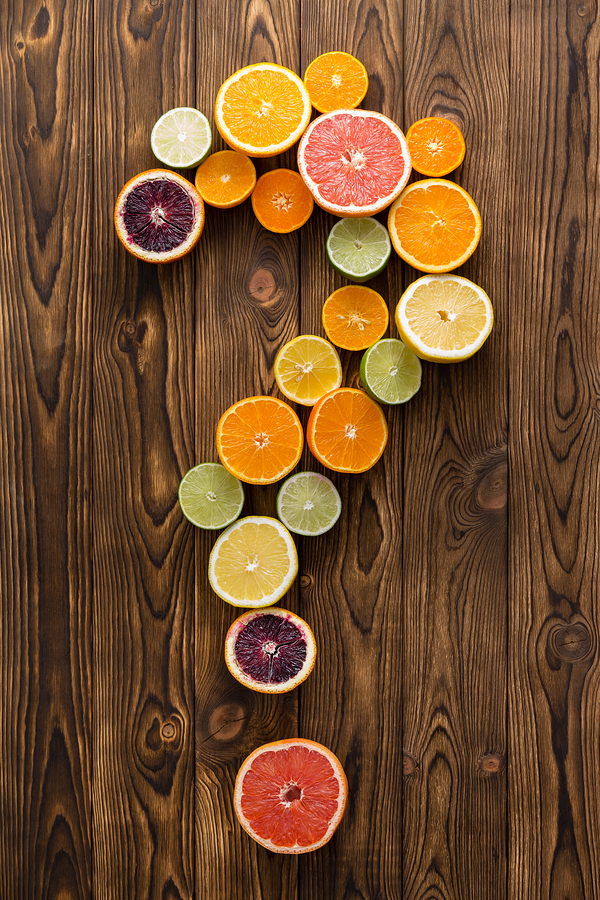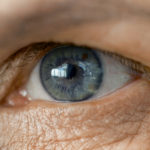By David Blyweiss, M.D., Advanced Natural Wellness
August 15, 2018
- Protect against this leading cause of blindness
- Compound in oranges slashes risk of macular degeneration up to 60%
- 5 more nutrients to preserve your vision
I’m a great lover of citrus fruits. Nothing tastes better on a hot summer day than the tangy sweet taste of antioxidant-rich oranges, grapefruits and tangerines.
But despite popular belief, it’s not just a hefty dose of vitamin C that makes these fruits so good for you. They also contain a powerhouse of antioxidant flavonoids that have antiviral, anti-cancer and anti-inflammatory activities.
If that’s not reason enough to eat more citrus, there’s another benefit that will certainly capture your attention.
It turns out that the flavonoid hesperidin, which is particularly high in oranges, may very well help protect against macular degeneration.
Now age-related macular degeneration, or AMD, is one of the most devastating eye conditions today. It interferes with your sharp, central vision. So when you look straight ahead, things look blurred and distorted. This makes it difficult to read, drive and even recognize faces.
MD Exposes the Hidden Danger to Your Eyes

When your eyesight starts to fail, it's a real problem. Suddenly you can't go to the grocery store... you can't get to the doctor if you have an emergency... you can't meet your friends for dinner…
Your "regular" doctor doesn't have time to keep up with the latest research. And the same goes for eye doctors. They go to school to learn how to fit you for glasses and contacts, but have no way of preventing the damage and loss of eyesight that threatens your freedom and independence.
Let me show you something that explains a LOT about how your eyes work.
In my FREE Special Report, I'll show you a HUGE, untapped resource for your eyes that safely and naturally restores clear, effortless eyesight.
Click here to get started...
Worse, AMD is the leading cause of blindness in people over 60 years of age. And, to date, there is no cure for it. It’s not reversible. But there are ways to protect your eyes from this sight-robbing disease.
Compound in Oranges Slashes Risk of Macular Degeneration up to 60%
One of the longest running studies on eye health is the Blue Mountains Eye Study. Over the past 25+ years, this body of research has provided a great deal of information on how to protect our eyesight as we age.
In the latest analysis, researchers compiled data collected from this long-running study. And they found that people who eat at least one serving of oranges every day have more than a 60% reduced risk of developing late macular degeneration 15 years later.
But it’s not the vitamin C that provides these protective benefits. It’s that all powerful flavonoid called hesperidin that can help preserve your vision. I suspect that there are many reasons for this. Hesperidin is a potent antioxidant and free radical scavenger that can restore the health of injured nerve cells. Just as importantly, it appears to inhibit blood vessel growth which may help prevent leaky blood vessels behind the macula.
With all of this in mind, I have a great recommendation to help you preserve your vision as you age: Eat an orange every day!
But for top-notch results, don’t stop there…
5 More Nutrients that Protect your Eyesight
In addition to the eye-protecting benefits of hesperidin, there are several other nutrients that can protect against AMD – and even help prevent it from progressing if caught early enough.
The World's Quickest Solution for Ending Prostate and Urinary Misery
This has recently been revealed to be one of the only real breakthroughs in prostate health.
The seeds of a strange fruit (sometimes called "Chinese Apples") hold powerful phytonutrients that are a revolution in prostate health.
In fact, UCLA and Veterans Administration research have now proved this to be true.
Not only that, but it may be the worlds quickest solution for ending prostate misery.
Simply stated, these phytonutrients represent a huge step beyond beta sitosterol, saw palmetto, and other phytosterols alone.
Simply click HERE if you want to have fast prostate relief...restful, uninterrupted sleep...no more constant "urges to go"...enhanced virility...and optimal prostate support for life.
Lutein and zeaxanthin are two of them. When you lack these carotenoids it can cause your macula to thin and degenerate. But when you get plenty of them, they protect the macula by absorbing the harmful rays from the sun. They also act as powerful antioxidants to shield your eyes from free radical damage.
Additionally, people with the highest intakes of lutein and zeaxanthin are less likely to develop drusen (yellowish deposits made of fats, protein and cell waste that collect under your retina) and leaky blood vessels behind the macula. They also have a greatly reduced risk of developing AMD.
Dark leafy greens like organic kale, turnip greens, collards, spinach and chard can all boost your lutein and zeaxanthin levels.
Taurine is the most abundant amino acid in the retina, lens, cornea and iris of your eyes. Most importantly, it protects specialized cells that send the images you see to your brain. If you suffer from vision problems, it could be because these cells aren’t getting the protection they need. You can get taurine from fish, shellfish, meat and lamb.
Zinc is a nutrient that probably doesn’t strike you as “eye-food.” After all, most people take zinc to fight off colds. But it’s also important to the health of the retina.
You see, when you’re short on zinc it makes it harder for your eyes to adjust to the dark. This makes it difficult to see things when you go from a well-lit area into a room that’s much darker. Meat, lamb, pumpkin seeds, sesame seeds, cashews and lentils all contain zinc.
Omega-3 fatty acids protect the nerve cells in the retina by shutting down oxidative stress, inflammation and abnormal blood vessel formation. Alpha lipoic acid protects the DNA in the cells in your eyes and helps boost oxygen delivery to the tiny capillaries responsible for blood flow.
Even simple nutrients like vitamins A, C and E can make the difference when it comes to preserving your eyesight or losing it.
And don’t forget your sunglasses! The more unprotected sun exposure your eyes have, the thinner your macula becomes. The UV rays from the sun also trigger the production of drusen. Look for a pair that bears a label stating that they block 100% of UVA and UVB rays. They’re going to cost a little more, but they can still be stylish and comfortable.
SOURCES:
Rafiq S, et al. Citrus peel as a source of functional ingredient: A review. Journal of the Saudi Society of Agricultural Sciences. 2016.
Gopinath B, et al. Dietary flavonoids and the prevalence and 15-y incidence of age-related macular degeneration. Am J Clin Nutr. 2018 Jul 6. [Epub ahead of print]
Tan JS, et al. Dietary antioxidants and the long-term incidence of age-related macular degeneration: the Blue Mountains Eye Study. Ophthalmology. 2008 Feb;115(2):334-41.
Ripps H, et al. Review: Taurine: A “very essential” amino acid. Mol Vis. 2012; 18: 2673–2686.
Froger N, et al. Taurine is a crucial factor to preserve retinal ganglion cell survival. Adv Exp Med Biol. 2013;775:69-83.
Ugarte M, et al. Iron, zinc, and copper in retinal physiology and disease. Surv Ophthalmol. 2013 Nov-Dec;58(6):585-609.
Rasmussen HM, et al. Nutrients for the aging eye. Clin Interv Aging. 2013; 8: 741–748.








The thinner cornea which is a consequence of laser eye surgery and focusses light on to the macula doesn’t help ( one of the reasons this retired ophthalmologist is happy with spex ). A recent trial of yellow night driving glasses reduces glare and also facilitates dark adaptation.